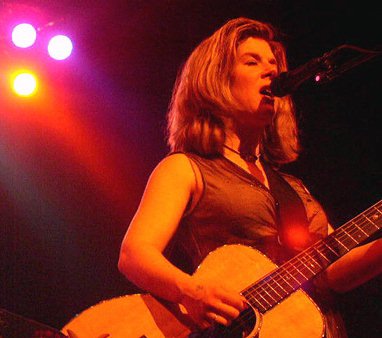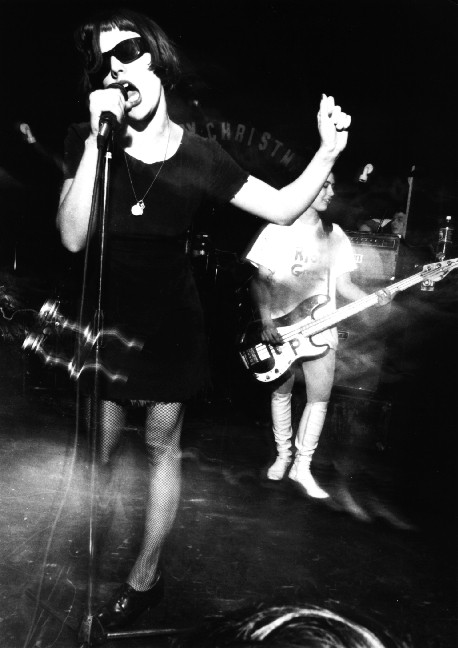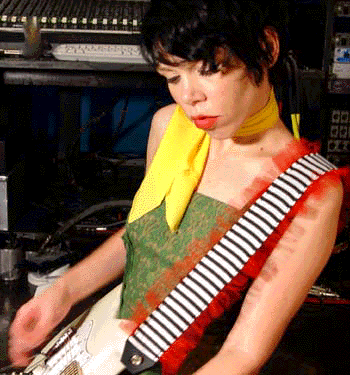 |
||||
|
Feminist Music
Unleashing Empowerment: A History of Musical FeminismMusic has been a powerful medium for expressing social and political movements, and feminism is no exception. Musical feminism has played a significant role in challenging gender norms, amplifying women's voices, and advocating for gender equality. This article explores the rich history of musical feminism, tracing its roots, key moments, influential artists, and the lasting impact it has had on the feminist movement. Early Feminist Anthems: The roots of musical feminism can be traced back to the early 20th century, when suffragettes used songs as a tool for mobilization and inspiration. Songs like "March of the Women" by Ethel Smyth and "Bread and Roses" by James Oppenheim became powerful anthems, empowering women to fight for their rights and demand equality. Feminism and the Rise of Popular Music: The 1960s and 1970s witnessed a surge of feminist activism and the emergence of popular music as a platform for expressing feminist ideas. Artists like Aretha Franklin, Nina Simone, and Janis Joplin infused their music with messages of empowerment, challenging societal expectations and advocating for women's liberation. Riot Grrrl Movement and Punk Feminism: The 1990s saw the rise of the Riot Grrrl movement, a subculture that combined punk rock music, feminist ideology, and DIY ethos. Bands like Bikini Kill, Sleater-Kinney, and Bratmobile used their music as a means of rebellion, addressing issues of gender inequality, sexual assault, and female empowerment. The movement inspired a new generation of feminist musicians and activists. Pop and Mainstream Feminism: In the 2000s and beyond, feminist messages became more prominent in mainstream pop music. Artists like Beyoncé, Lady Gaga, and Taylor Swift incorporated feminist themes into their music, addressing topics such as self-empowerment, body positivity, and women's rights. Their music reached wider audiences, bringing feminist discourse to the mainstream and sparking conversations about gender equality. Intersectionality and Musical Feminism: In recent years, musical feminism has embraced intersectionality, recognizing that feminism must address the experiences of women from diverse backgrounds. Artists like Janelle Monáe, Lizzo, and Solange have used their music to explore the intersections of race, gender, and identity, highlighting the struggles faced by marginalized communities and advocating for social justice. Music as a Tool for Activism: Musical feminism has often been intertwined with activism, with artists using their platforms to raise awareness and support social causes. Benefit concerts, charity singles, and collaborations with social justice organizations have been instrumental in advocating for gender equality, reproductive rights, and LGBTQ rights. Online Spaces and the Digital Revolution: The rise of digital platforms and social media has revolutionized the landscape of musical feminism. Online spaces have provided a platform for artists and activists to connect, share their music, and mobilize communities. Platforms like YouTube, Spotify, and Bandcamp have democratized access to music, allowing independent feminist artists to reach broader audiences and challenge the dominance of traditional record labels. Music Festivals and Women's Representation: Music festivals have long been criticized for their gender imbalance in artist lineups. In recent years, feminist activists and organizations have been at the forefront of advocating for greater representation and inclusivity. Initiatives like the Keychange campaign, founded by PRS Foundation, have made strides in addressing gender disparities by committing to achieving gender-balanced lineups at festivals. The Influence of Musical Feminism: Musical feminism has had a profound impact on both popular culture and the feminist movement. It has helped shape the cultural narrative around gender, challenging stereotypes and highlighting the experiences of women. Feminist anthems like Helen Reddy's "I Am Woman" and Beyoncé's "Formation" have become rallying cries, inspiring generations and fueling feminist discourse. Challenges and Future Directions: While musical feminism has made significant strides, it continues to face challenges. Women and marginalized artists still struggle with unequal opportunities, limited representation in the music industry, and the perpetuation of gender stereotypes in popular culture. Furthermore, the ongoing conversations around cultural appropriation and the need for intersectionality require careful consideration and examination within the realm of musical feminism. Looking ahead, the future of musical feminism lies in continued collaboration, amplification of marginalized voices, and the exploration of new genres and platforms. It requires ongoing support for diverse artists, dismantling systemic barriers, and centering the experiences of women from different backgrounds. By leveraging the power of music to challenge norms, advocate for equality, and foster inclusive spaces, musical feminism will continue to inspire, provoke, and pave the way for a more just and equitable society. Conclusion: The history of musical feminism is a testament to the power of music as a catalyst for change and a medium for self-expression. From the early suffragette anthems to the riot grrrl movement and the current wave of intersectional feminism, music has played a vital role in amplifying feminist voices and shaping the discourse around gender equality. As musical feminism evolves, it remains an essential tool for challenging social norms, inspiring activism, and building a more inclusive world where the voices of all genders are heard and celebrated.
More about Feminist MusicListen closely to the lyrics and you realize that there is a lot of feminist music out there, sometimes disguised as pop music. You don't have to be like Ani DiFranco to be a feminist musician. Music is such a varied art form that people can use any style they want to promote their cause to a new segment of society.
Grrl Power Music
|
|
|||
|
|
||||
Grrl Power Music
Feminist music (sometimes known as women's music, womyn's music, wimmin's music) is typically music for women by women, and not necessarily on a feminist topic but often more about shared women's experiences. The genre picked up pace during the 2nd wave feminist movement of the 1960s-1970s (sometimes tied together peace activism, lesbian rights and ethnic rights depending on the background and beliefs of the musicians) and is readily available online if you look for mp3s by the following people:
During the late 1960s and early 1970s there were few real opportunities for female musicians and performers who were often facing discrimination and taken advantage of by record labels and agents combined. For feminist musicians the task was more difficult and major record labels only signed a few feminist bands including Fanny, Birtha, The Deadly Nightshade, Goldie and the Gingerbreads and the band Isis. The lack of feminist music in the mainstream made it necessary for these women to sell their music outside of the mainstream music market. Lesbian and feminist market separatism meant however that while their market was smaller, they were at least independent and were not sharing revenue.
In 1972, Maxine Feldman, an openly gay performer since 1964, recorded the first lesbian single record, "Angry Atthis," (Atthis was lover of the poet Sappho). In 1973, Alix Dobkin, flautist Kay Gardner, and bassist Patches Attom created the group Lavender Jane, and recorded an album entitled "Lavender Jane Loves Women", the very first full-length album for and by lesbians. In the same year the feminist all women band The Chicago Liberation Rock Band recorded "Mountain Movin' Day". These early recordings were successful despite the word of mouth promotion and were sold through mail order and in a few lesbian-feminist bookstores. Olivia Records, the first women's music record label, was created in 1973. Selling via mail order, Olivia Records released Meg Christian's "I Know You Know" and Cris Williamson's "The Changer and the Changed", which was one of the all-time best selling albums on any independent label during the early 1970s, and was also the first LP to be entirely produced by women. "Changer" is the all-time best-selling album to come out of the women's music genre. Other independent labels and distributors since then include:
In 1978, a national booking company, Roadwork Inc. was formed to promote women artists. Between 1984 and 1994, "HOT WIRE: The Journal of Women's Music and Culture" was published by feminist volunteers in Chicago. Founded by Toni Armstrong Jr., Ann Morris, Michele Gautreaux, and Yvonne Zipter the publication focused exclusively on lesbian feminist musicians, festivals, venues, and various topics pertaining to writing, theater, dance, comedy, and the arts. "HOT WIRE" was published three times / year and each 64-page issue included a soundsheet with at least four songs by lesbian and/or feminist artists. Many of the women from the journal are still active in the women's music business, but the market has now shifted largely online. The first women's music festival occurred in 1973 at Sacramento State University. From 1973 to 1976 many other festivals were organized including the first National Women's Music Festival at Champaign-Urbana, Illinois in 1974. Other festivals include:
Below to the Right: Ani DiFranco, Jess Klein & Kinnie Starr - Three of the Biggest Divas in the Feminist Music Business.
Feminist Music
The following is a list of musicians who create feminist / girl power songs.


Catatonia - The Ballad of Tom Jones Dar Williams - When I Was A Boy Lesli Wood - The Last Thing You Feel Disclaimer: These samples are meant to encourage people to buy CDs of artists they may never have heard of. We do not intend any copyright infringement.
|
||||
 |
Health Matters - Historical Feminism - International Feminism - Lesbian Feminism - Male Feminism - Modern Feminism - Musical Feminism Philosophy of Feminism - Postfeminism - Pro-Choice Feminism - Quotes by Feminists - Religion and Feminism - Sports and Feminism |
 |
||


